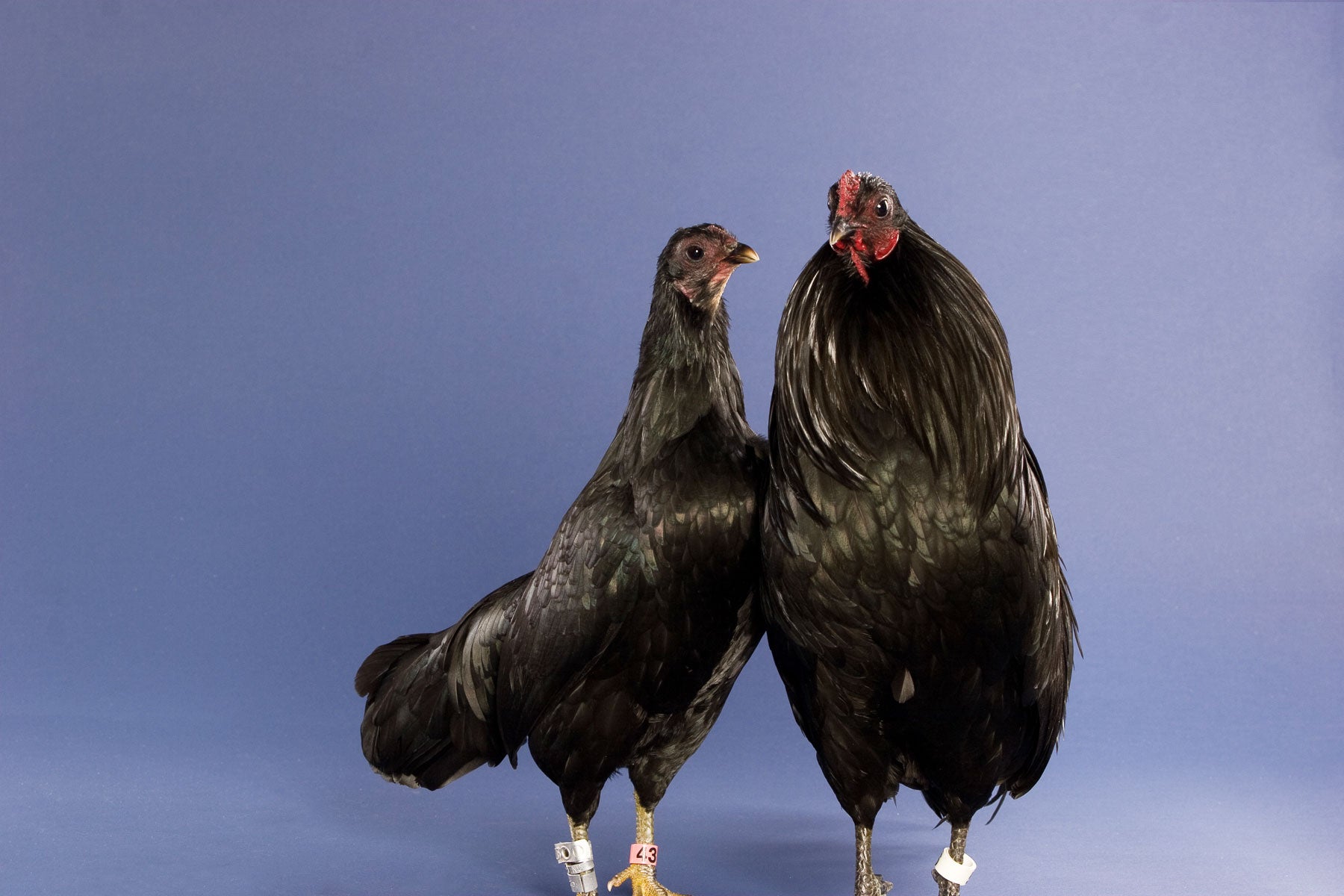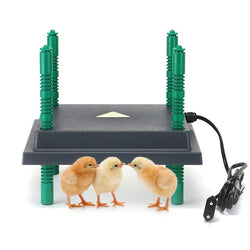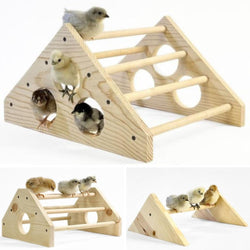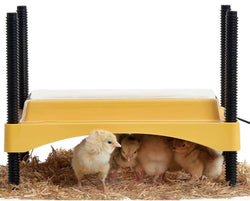Can I keep just one chicken?
Back to blog
Yes - you can keep just one chicken, but the question is, should you? Keeping one chicken may sound like a great idea to us humans, but is it a good idea for the bird?
When considering bringing a member of another species into our care, it is important to think about not just what makes us happy, but what is best for the animal as well. In the case of chickens, living in a flock with members of their own species is what their instincts are honed to expect, and that situation seems to be best for their well-being.
Red Jungle Fowl (the species from which most experts believe domestic chickens have evolved) and domestic chickens allowed to go feral naturally form small groups consisting of a dominant rooster and several hens, juveniles, and subordinate roosters. Even with all of the selective breeding done by humans, this social setting is the state to which feral chickens naturally revert, and seems to be the context in which they are best set to thrive.
While we cannot know exactly what is happening inside a bird's mind and body, when deprived of the conditions their instincts have come to expect, it is reasonable to assume that an isolated bird will experience some measure of stress and disorientation.
As social creatures, chickens interact with one another in various behaviors, including dust bathing, grooming, broodiness and sharing egg boxes, chick-raising, warmth, and perhaps even friendship.

Chickens are such social creatures.
Chickens also communicate with each other, expressing a wide range of sounds meant to provide warnings, call on others to feed, invite hens to mate, express contentment, and much more. As such, chickens need other members of their species in order to feel safe and secure, to avoid boredom, and be be socially connected.
Because of factors, it is generally a good idea to keep at least two chickens. If you can, we recommend that you keep at least three; that way, if you experience a loss, the other two birds still have a small "flock." Plus, more chickens means more eggs--and more fun!
When considering bringing a member of another species into our care, it is important to think about not just what makes us happy, but what is best for the animal as well. In the case of chickens, living in a flock with members of their own species is what their instincts are honed to expect, and that situation seems to be best for their well-being.
Red Jungle Fowl (the species from which most experts believe domestic chickens have evolved) and domestic chickens allowed to go feral naturally form small groups consisting of a dominant rooster and several hens, juveniles, and subordinate roosters. Even with all of the selective breeding done by humans, this social setting is the state to which feral chickens naturally revert, and seems to be the context in which they are best set to thrive.
While we cannot know exactly what is happening inside a bird's mind and body, when deprived of the conditions their instincts have come to expect, it is reasonable to assume that an isolated bird will experience some measure of stress and disorientation.
As social creatures, chickens interact with one another in various behaviors, including dust bathing, grooming, broodiness and sharing egg boxes, chick-raising, warmth, and perhaps even friendship.

Chickens are such social creatures.
Chickens also communicate with each other, expressing a wide range of sounds meant to provide warnings, call on others to feed, invite hens to mate, express contentment, and much more. As such, chickens need other members of their species in order to feel safe and secure, to avoid boredom, and be be socially connected.
Because of factors, it is generally a good idea to keep at least two chickens. If you can, we recommend that you keep at least three; that way, if you experience a loss, the other two birds still have a small "flock." Plus, more chickens means more eggs--and more fun!











